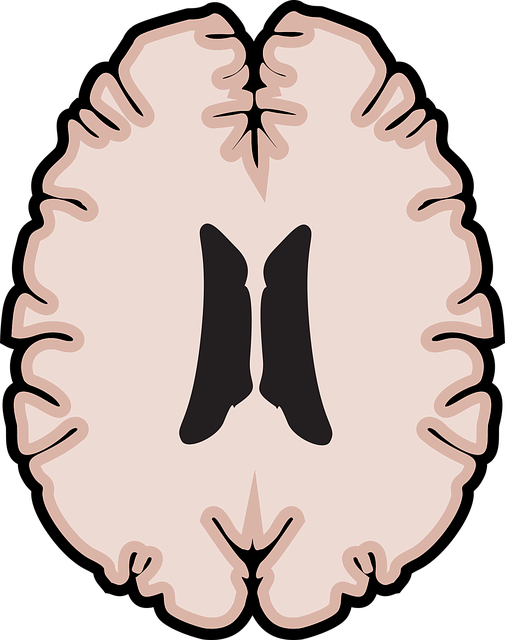Castle Rock Family Counseling Therapy prioritizes safety and ethical practices in mental health counseling. They assess client risks, foster resilience, and maintain a secure environment through self-awareness exercises and mood management techniques. Their holistic approach equips counselors to handle high-conflict situations, manage sensitive information, and prevent burnout. By integrating conflict resolution, empathy, and self-care, the therapy center ensures a supportive setting for both clients and therapists. Case studies further enhance their understanding of client resilience, mood management, and cultural sensitivity.
In the dynamic field of mental health practice, risk assessment is an indispensable tool for ensuring patient safety and fostering effective therapy. This article explores comprehensive risk management strategies, focusing on essential aspects like understanding risk assessment in mental health contexts, identifying clinical risks, and ethical considerations. We delve into specific approaches tailored to Castle Rock Family Counseling Therapy, supported by insightful case studies. By examining these elements, professionals can enhance safety and optimize therapeutic outcomes.
- Understanding Risk Assessment in Mental Health Practice
- Identifying Potential Risks and Hazards in Clinical Settings
- Ethical Considerations for Mental Health Professionals
- Strategies to Enhance Safety in Castle Rock Family Counseling Therapy
- Case Studies: Learning from Experience in Risk Management
Understanding Risk Assessment in Mental Health Practice

In the field of mental health counseling, risk assessment is a cornerstone of ethical and effective practice. It involves meticulously evaluating and understanding the potential risks and hazards that clients may face during therapy, ensuring their safety and well-being. At Castle Rock Family Counseling Therapy, we recognize that each client presents unique challenges and requires tailored strategies to mitigate risks. This holistic approach encompasses not just identifying vulnerabilities but also fostering resilience through Self-Awareness Exercises and Mood Management techniques.
By integrating comprehensive risk assessment into our practice, we aim to create a secure therapeutic environment. Mental health professionals must be adept at recognizing subtle cues of distress, understanding complex client histories, and anticipating potential triggers. Through regular self-reflection and staying abreast of industry best practices, counselors can effectively navigate these challenges, ensuring that every session is a step towards positive change for our clients.
Identifying Potential Risks and Hazards in Clinical Settings

In clinical settings, mental health professionals at Castle Rock Family Counseling Therapy must be vigilant in identifying potential risks and hazards that could impact their well-being and that of their clients. This includes not only physical safety but also emotional and psychological security. Among the various risks to navigate are high-conflict situations, sensitive personal information handled by therapists, and the potential for burnout due to intense emotional labor. For instance, conflict resolution techniques and empathy building strategies are crucial tools to de-escalate tense interactions while maintaining professional boundaries.
Additionally, compassion cultivation practices can fortify therapists against the weight of difficult cases, enabling them to provide consistent care without compromising their mental health. By proactively managing these risks through evidence-based methods, Castle Rock Family Counseling Therapy ensures a supportive and therapeutic environment for both its professionals and clients.
Ethical Considerations for Mental Health Professionals

Mental health professionals must navigate a complex landscape of ethical considerations in their practice. One key aspect is maintaining confidentiality and ensuring client privacy. Patients often share deeply personal and sensitive information, and it’s essential that counselors respect this trust and safeguard such details. This includes adhering to legal requirements for record-keeping and reporting, as well as establishing clear boundaries to prevent any potential harm or breach of confidence.
Furthermore, these professionals have a responsibility to prioritize their own well-being through self-care routines development for better mental health. Just like they support others in healing emotional processes, healthcare provider cultural competency training is vital for them to understand and appreciate diverse client backgrounds. By integrating practices that foster resilience and self-awareness, mental health professionals can effectively manage stress and maintain the integrity of their work, ultimately enhancing services provided at Castle Rock Family Counseling Therapy.
Strategies to Enhance Safety in Castle Rock Family Counseling Therapy

In the realm of Castle Rock Family Counseling Therapy, enhancing safety is paramount to fostering a supportive environment for all involved. To ensure client well-being and prevent potential risks, therapists can employ various strategies. One key approach is integrating anxiety relief techniques into sessions, empowering clients to manage stress and promote emotional stability. Additionally, focusing on confidence boosting activities can strengthen the therapist-client relationship, creating a safe space for open communication.
Beyond these, prioritizing self-care and burnout prevention is essential for mental health professionals. Therapists should encourage regular breaks, healthy work-life balance, and provide resources for stress management. By implementing these strategies, Castle Rock Family Counseling Therapy can offer a comprehensive approach to safety, benefiting both clients and practitioners alike.
Case Studies: Learning from Experience in Risk Management

Case studies play a pivotal role in shaping effective risk assessment strategies for mental health professionals. By examining real-life scenarios, such as those presented by Castle Rock Family Counseling Therapy, practitioners can gain invaluable insights into managing diverse client populations and mitigating potential risks. These studies offer a window into the complexities of mental health practice, allowing professionals to learn from both successful interventions and challenging outcomes.
For instance, analyzing case studies involving individuals with severe mood disorders can inform strategies for effective mood management. Additionally, studying the interplay between cultural factors and therapeutic approaches in diverse communities contributes to Mental Health Policy Analysis and Advocacy. Ultimately, these experiences foster a deeper understanding of client resilience and Inner Strength Development, empowering mental health professionals to navigate risk assessment and intervention with greater confidence and adaptability.
Mental health professionals, like those practicing Castle Rock Family Counseling Therapy, must be adept at navigating complex ethical and safety considerations. By understanding risk assessment, identifying potential hazards, and adopting strategies that enhance safety, practitioners can ensure a more secure and effective therapeutic environment. Ethical mindfulness and informed decision-making are paramount to mitigating risks effectively. Learning from case studies offers valuable insights into managing these challenges, ultimately fostering a culture of resilience and best practices within the field.














